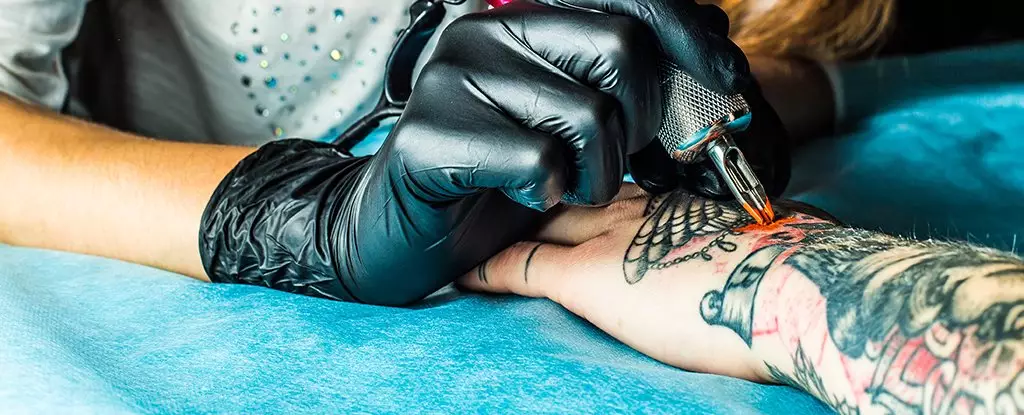The recent study conducted by the National Center for Toxicological Research (NCTR) and the Center for Food Safety and Applied Nutrition (CFSAN) has revealed alarming findings regarding the presence of bacteria in tattoo inks and permanent makeup products. The research found that approximately 35 percent of the sampled products contained bacteria, posing a significant risk to individuals getting tattooed. What is particularly concerning is that these bacteria include both aerobic and anaerobic species, with the latter capable of surviving in low-oxygen environments such as the dermal layer of the skin. This raises serious concerns about the potential for infections caused by contaminated tattoo inks.
Despite the fact that 49 out of 75 sampled products were claimed by manufacturers to be sterile and free from bacteria, the study revealed a stark contrast between these claims and the actual presence of microorganisms in the inks. The researchers identified 8 potentially pathogenic species, with the Staphylococcus genus being the most common. This discrepancy suggests that either the sterilization procedures used by manufacturers are inadequate in eliminating bacteria, or that the claims of sterility on product labels are misleading. As a result, there is an urgent need to reevaluate the sterilization methods employed in the production of tattoo inks to ensure the microbial safety of these products.
The prevalence of bacteria in tattoo inks is particularly concerning given the already established health risks associated with tattooing. Studies have shown that individuals with tattoos are at an increased risk of developing health issues, including an elevated risk of cancer. While getting tattoos has also been linked to immune system strengthening, microbial infections remain a common complication among tattooed individuals, affecting approximately 0.5 to 6 percent of those with tattoos. These infections were previously attributed to issues with hygiene or aftercare, but the latest research indicates that the inks themselves may be a source of infection. This underscores the need for greater scrutiny and oversight in the production and labeling of tattoo inks to protect public health.
The study’s findings underscore the critical importance of ongoing monitoring and evaluation of tattoo inks to ensure their microbial safety. With a significant portion of commercially available products found to contain bacteria, there is a clear need for stricter regulations and quality control measures in the tattoo industry. As tattoos continue to grow in popularity, with approximately one in three adults in the US having at least one tattoo, it is essential to prioritize the safety and well-being of individuals seeking body art. By conducting regular assessments of tattoo inks and implementing more effective sterilization protocols, we can help prevent infections and adverse health outcomes associated with tattooing.
The presence of bacteria in tattoo inks represents a serious public health concern that requires immediate attention. The inconsistency between product labels claiming sterility and the actual presence of microorganisms highlights the need for enhanced oversight and regulation of tattoo inks. Moving forward, it is essential for manufacturers, regulatory agencies, and healthcare professionals to work collaboratively to ensure the safety and quality of tattoo products. By prioritizing the microbial safety of tattoo inks, we can better protect individuals who choose to express themselves through body art.


Leave a Reply